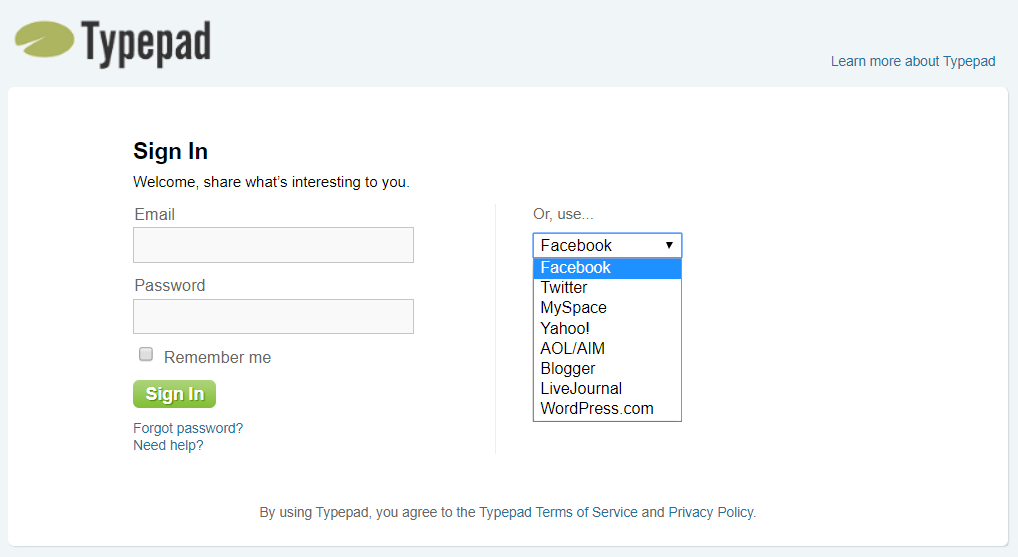login
This article is a stub. You can help the IndieWeb wiki by expanding it.
login (AKA sign-in) is a feature of many websites where a user is asked to provide a username (often an email address) and password in order to gain (more) access to the site; the IndieWebCamp wiki uses IndieLogin for delegated sign-in; other sites or services directly use IndieAuth for delegated sign-in.
Delegated Sign-in
(stub, consider making a separate page if this grows too big)
Delegated sign-in is a growing method for websites to allow signing-in via a third party authentication provider, instead of every website asking users to create a new username & password (and submit their email address).
Delegated Sign-in Standards
There are several standardized delegated sign-in protocols
Obsolete (per https://openid.net/developers/specs/)
- OpenID 1.x, 2.0
Delegated Sign-in Services
There are services that implement one or more delegated sign-in protocols
- IndieLogin is a delegated sign-in provider that supports IndieAuth, OpenID, and RelMeAuth with a specific set of OAuth supporting external services such as GitHub and Twitter.
- ...
Proprietary Delegated Sign-in
There are several popular proprietary delegated sign-in services that are often displayed together on a website using delegated sign-in:

Screenshot from the article The Decline of OpenID.
Examples from the above screenshot:
- Sign in with Google
- Sign in with Facebook
- Sign in with Twitter
- Sign in with Github
Displaying such a variety of brands/logos/appearances is also known as the NASCAR problem.
The following from the screen shot are not examples of delegated sign-in:
- Sign in with email — not delegated, this typically depends on an email-based service-specific account and password, though some services may use a one-time emailed authorization link.
- Sign in with phone — also not delegated, this typically depends on a one-time code sent via SMS to a mobile phone
Silo Examples
Typepad's login form includes options for Facebook, Twitter, MySpace, Yahoo, AOL/AIM, Blogger, LiveJournal, and Wordpress.com as of 2019-11-08. Notably, Myspace and AIM no longer exist.
See Also
- https://twitter.com/LeonieWatson/status/1104731802458038273
- "If you build login/password reset interfaces, please don't prevent pasting into password fields. It reduces security because manually entering a secure password is hard for most people and worse for many disabled people, so it's easier to use a simple password instead." @LeonieWatson March 10, 2019
- login wall
- indielogin.com
- IndieAuth
- Web sign-in
- RelMeAuth

